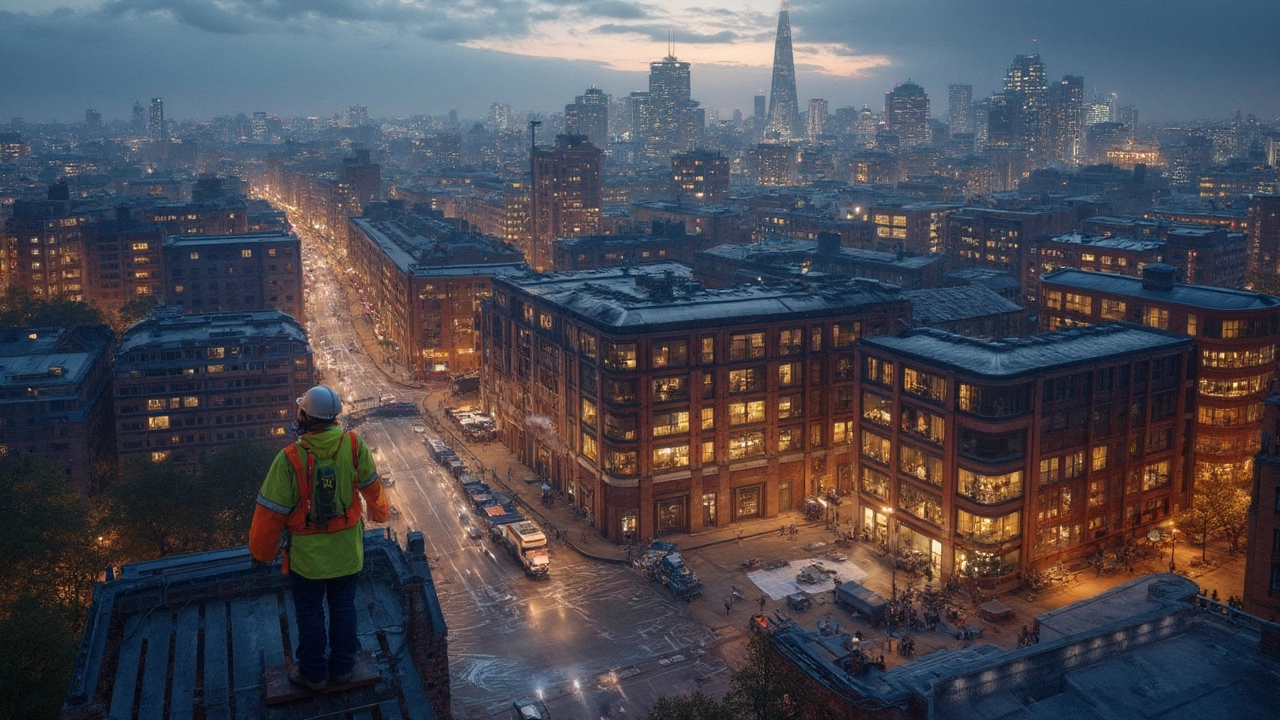Fireproof Commercial Construction: Why It Matters and How to Do It Right
If you own or manage a commercial building, fire safety isn’t optional – it’s a must. A fire can shut down operations, damage equipment, and put lives at risk. That’s why fireproof commercial construction is a smart investment. It’s not just about adding a sprinkler system; it’s about using the right materials, following the right codes, and hiring experts who know how to protect a building from start to finish.
Key Materials That Stop Fire in Its Tracks
When you think about fireproofing, steel and concrete usually come to mind, and for good reason. Concrete walls and floors act as a strong barrier, slowing heat transfer and keeping structural integrity intact. Steel frames are strong, but they need a protective coating – a fire‑resistive paint or intumescent material that expands when heated, creating an insulating layer. Gypsum board with fire‑rating (like Type X) works well for interior walls, and fire‑rated doors prevent flames from spreading between rooms.
Don’t forget about fire‑resistive insulation. Fiberglass or mineral wool not only boosts energy efficiency but also resists fire, buying you crucial time if a blaze starts. All of these materials are readily available and can be specified in a building plan to meet local fire codes.
Meeting Codes and Getting Certified
Every region has fire safety regulations that dictate how a commercial building should be constructed. In the UK, for example, the Building Regulations Part B covers fire safety, while the International Fire Code (IFC) guides many other countries. The first step is a fire risk assessment – a professional will look at the building’s use, occupancy, and layout to decide what fire‑resistance rating is needed.
Once you know the rating, the construction team will install fire‑rated walls, doors, and structural protections. After the build, a third‑party fire inspector conducts a final check. Passing this inspection earns you a fire safety certificate, which is essential for insurance and legal compliance.
Skipping this step can lead to costly fines, higher insurance premiums, or even forced closures. Getting it right the first time saves money and keeps your staff and customers safe.
When you choose a contractor, ask for proof of experience in fireproof commercial projects. Look for certifications like ISO 45001 (occupational health and safety) and evidence of successful fire safety inspections on past jobs.
In summary, fireproof commercial construction isn’t a luxury – it’s a practical way to protect assets, maintain business continuity, and meet legal requirements. By selecting fire‑resistant materials, following the right codes, and working with qualified professionals, you’ll build a space that stands strong against fire risks. Ready to make your next project fire‑safe? Contact a trusted construction partner today and get a tailored plan that fits your budget and timeline.

